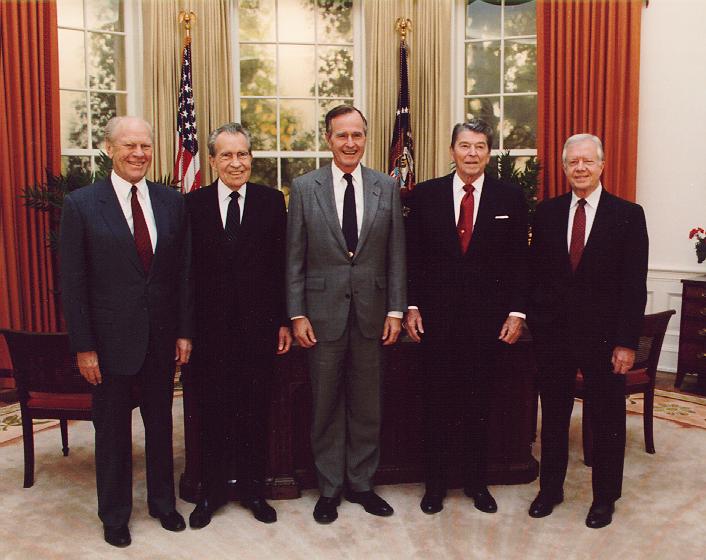
Jimmy Carter’s born-again credentials drew many evangelicals to the polls in 1976. Evangelicals who had never campaigned for a candidate campaigned for Carter. Jerry Falwell, future founder of the Moral Majority, encouraged evangelicals to vote for the Democratic candidate. Pat Robertson, who claimed credit for Carter’s win in the Pennsylvania primary, hosted the candidate on his “700 Club” television show. Decades later he would say that “Carter was the one who activated me and a lot of others. We had great hopes. . . . [He was] like our champion.”
For evangelicals not yet established in the political mainstream, Carter’s victory was an assertion of evangelical identity and influence. Finally, noted Jim Wallis in Time magazine, evangelicals “see they’ve got a real, live one all of their own.” A key component of the Carter coalition, evangelicals helped deliver a solid victory for the Democrat over Gerald Ford.
Four years later most of those evangelicals were disappointed. Evangelical progressives criticized Carter failing to follow through in his human rights rhetoric; for increasing defense spending; for a passive approach to the energy crisis; for not lobbying hard enough to pass the Equal Rights Amendment; for inadequate educational funding; for increasing the nuclear threat; for failing to help the poor; and for elevating efficiency above compassion. “At crucial points where the Bible shows what justice means,” said Ron Sider, “Carter doesn’t go far enough.”
Politically conservative evangelicals also criticized the president. Carter had not pushed their agenda on abortion. He had not “protected” them from the IRS, which threatened to remove the tax-exempt status of Christian schools that did not racially integrate.
One “high official of the Southern Baptist Convention” who visited Carter in the Oval Office, told him, “We are praying, Mr. President, that you will abandon secular humanism as your religion.” Rick Scarborough, founder of the conservative organization Vision America, remembers, “The first time I voted was for Carter. The second time was for ‘anybody but Carter,’ because he had betrayed everything I hold dear.”

Whatever their political persuasion, evangelicals learned a strong lesson about the limits of identity politics. Many politicians speak the language of faith in order to troll for votes. Even those who speak the language authentically have difficulty implementing “Christian” policies.
Three decades later, George W. Bush became a “real, live one all of their own.” He too suffered backlash from some evangelical supporters. To give just one example, David Kuo, Special Assistant to President George W. Bush and Deputy Director of the Office of Faith-Based and Community Initiatives, announced on 60 Minutes that he and fellow evangelicals had been duped by the evangelical language of the Bush Administration.
And now in 2016, evangelicals (of a certain stripe) have had Ted Cruz, yet another “real, live one all of their own.” Many were drawn to his language of piety, his vocabulary of a Christian nation, and the Pentecostal strains of his preacher-father. But his rhetoric was in service of some troubling policies. He expressed a desire to carpet-bomb parts of the Middle East. He refused to meet with Muslim advocacy groups. He took a very hard line on immigration.

It is a disconcerting cultural moment when many of the candidates most likely to pray where everyone can see them are the same candidates who embody the least compassion. In an essay entitled “The Brutalism of Ted Cruz,” conservative columnist David Brooks described how Cruz’s “speeches are marked by what you might call pagan brutalism. There is not a hint of compassion, gentleness and mercy. Instead, his speeches are marked by a long list of enemies, and vows to crush, shred, destroy, bomb them.”
Brooks’s description of Cruz could just as easily be applied to Trump. But at least Trump doesn’t say these things in the name of Christ.
















